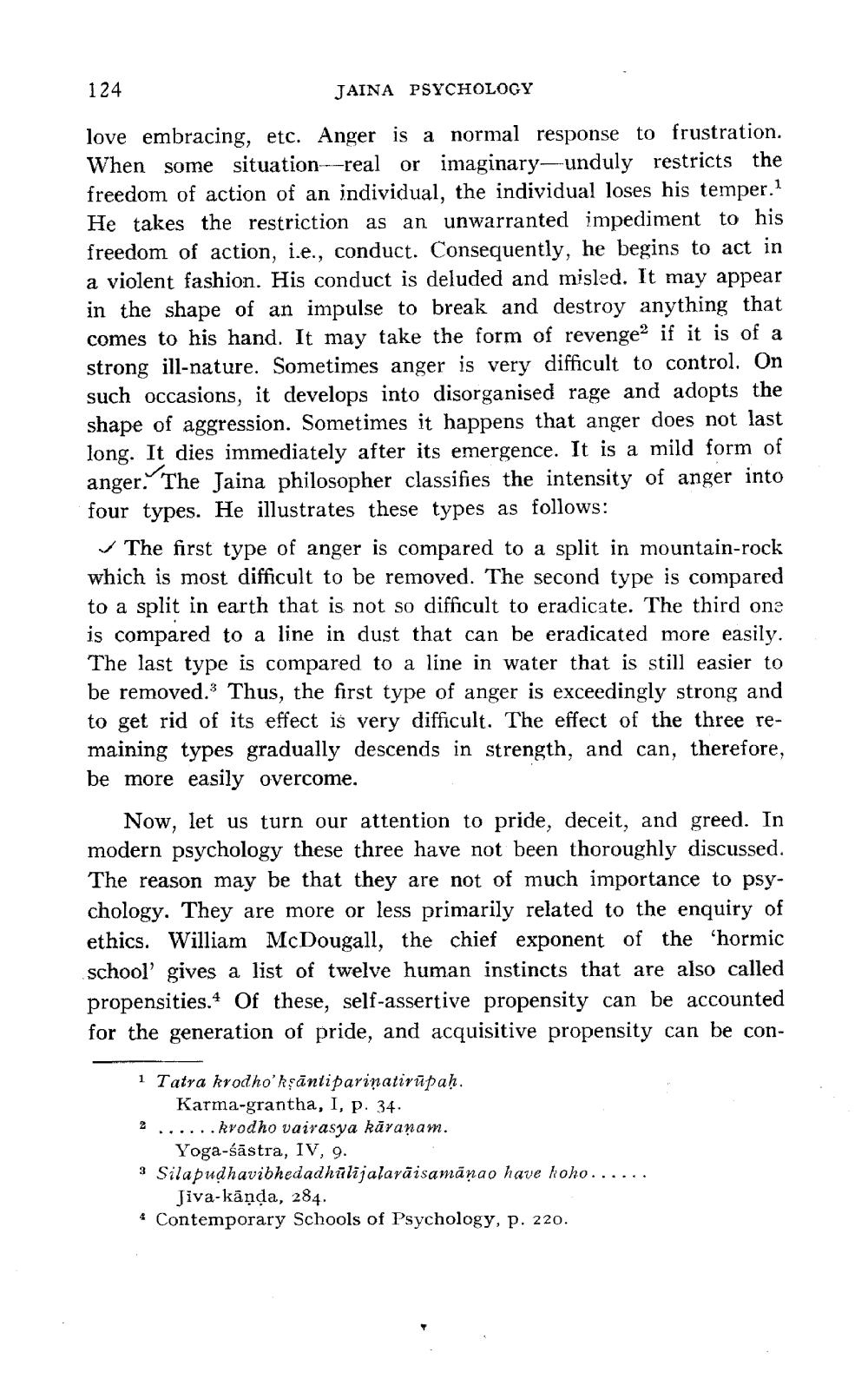________________
124
JAINA PSYCHOLOGY love embracing, etc. Anger is a normal response to frustration. When some situation--real or imaginary-unduly restricts the freedom of action of an individual, the individual loses his temper.1 He takes the restriction as an unwarranted impediment to his freedom of action, i.e., conduct. Consequently, he begins to act in a violent fashion. His conduct is deluded and misled. It may appear in the shape of an impulse to break and destroy anything that comes to his hand. It may take the form of revenge? if it is of a strong ill-nature. Sometimes anger is very difficult to control. On such occasions, it develops into disorganised rage and adopts the shape of aggression. Sometimes it happens that anger does not last long. It dies immediately after its emergence. It is a mild form of anger. The Jaina philosopher classifies the intensity of anger into four types. He illustrates these types as follows:
The first type of anger is compared to a split in mountain-rock which is most difficult to be removed. The second type is compared to a split in earth that is not so difficult to eradicate. The third one is compared to a line in dust that can be eradicated more easily. The last type is compared to a line in water that is still easier to be removed. Thus, the first type of anger is exceedingly strong and to get rid of its effect is very difficult. The effect of the three remaining types gradually descends in strength, and can, therefore, be more easily overcome.
Now, let us turn our attention to pride, deceit, and greed. In modern psychology these three have not been thoroughly discussed. The reason may be that they are not of much importance to psychology. They are more or less primarily related to the enquiry of ethics. William McDougall, the chief exponent of the 'hormic school gives a list of twelve human instincts that are also called propensities. Of these, self-assertive propensity can be accounted for the generation of pride, and acquisitive propensity can be con
1 Tatra krodho'kşāntiparinatirūpah.
Karma-grantha, I, p. 34. 2......krodho vairasya kāranam.
Yoga-śāstra, IV, 9. 3 Sila pudhavibhedadhūlijalarāisamānao have hoho......
Jiva-kāņda, 284. 4 Contemporary Schools of Psychology, p. 220.




